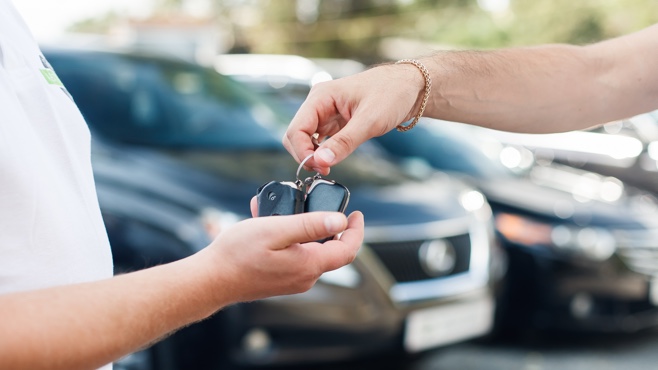Best Reasons For Choosing A Car Rental Website
Best Reasons For Choosing A Car Rental Website
Blog Article
How Do You Determine The Coverage Of The Rental Insurance Policy When You Rent A Vehicle
Reviewing the coverage of insurance and choices offered by the rental company is crucial to ensure you have adequate protection and avoid any unnecessary costs. Understanding the fundamental coverage first. You need to understand what is covered in the rental contract. Most rental companies will provide a basic liability policy, which covers damages to third-party properties as well as bodily injuries that occur in the case of an accident. This type of coverage could include deductibles and limits.
Check out additional coverage options. In addition to the basic insurance, many rental firms offer optional insurance that provides additional protection. There are two kinds of common extra coverage: Collision Damage Waiver which can reduce or eliminate the financial burden that you bear for damage caused to your rental vehicle, and Loss Damage Waiver which covers theft or damages to your rental.
Examine the coverage and deductibles. Examine the coverage limits along with deductibles and other terms associated with the various insurance options. Determine the maximum amount that the insurance company will pay in the event of loss or damage, as well as the amount of money you have to pay yourself (deductible) prior to the insurance coverage taking effect.
Check Personal Insurance Policies. Check if your car insurance or credit card policy includes rental cars. Certain credit card companies provide secondary insurance for rental cars when you pay with the card. Similar to that, your auto insurance policy could provide coverage for rental cars, but it is contingent on your policy.
Assess your risk tolerance. When deciding if you should consider purchasing additional insurance be sure to consider your financial circumstances and your risk tolerance. It is possible to buy additional insurance coverage if your concern is related to the risk of damage or theft. But, if you already have enough protection through other methods you can decline the rental company's insurance options in order to save money.
Find out about Exclusions and Other Exceptions. Ask about any exemptions or limitations within the policy that may apply to off-road driving or the use of the car commercially. It is important to are aware of the terms and conditions of the policy in order to keep from being surprised.
Document Existing Damage: Before accepting the rental car examine it thoroughly for any existing damage or indications of wear and wear. Note any dents, scratches, or other damage on the rental agreement and capture photos or videos to serve as evidence. This will prevent you from having to pay for damages existing in the vehicle before you return it.
If you carefully review the insurance options and coverage offered by the rental company and comparing them with your own, you can make informed choices to ensure that you are covered with appropriate protection during your rental time while reducing the amount of unnecessary expenses. View the top here are the findings on Worldwide car rentals for website tips including day by day car rental, rent a car around me, car hire sports car, rent a car in eu, sports car rental, good rent a car, book hire car, exocit car rental, trip rental car, rental luxury and more.
How Can You Check The Vehicle For Signs Of Damage?
Before accepting the rental prior to accepting the rental, you must check for wear and wear and tear. In the event of a mishap, you could be held responsible for issues that already existed. Follow these steps to conduct a thorough check.
Take a walk around the exterior of the vehicle and examine the car for dents, scratches, marks, or any other damage.
Take extra care on the bumpers.
Make sure to inspect the windows and windshields for cracks, chips, or other damage.
Look under the car to see if there are any damages or leaks.
Interior Inspection
Lift the doors of your vehicle including the trunk.
Check the seats for marks and wear that is excessive.
To make sure that all adjustments function properly, test the seat adjustment as well as those on the driver's side.
Look for damage to the dashboard or the steering wheel.
Verify the condition and performance of the heating, cooling and ventilation system.
Test the audio, light signals, as well as other electronic devices.
Functional Inspection
Begin driving then check the dashboard for any warnings or errors.
Check your brakes, the accelerator, and the clutch (if appropriate) to ensure they are working smoothly.
To check that your headlights and high beams, brake light, and turn signal are all working check them by turning on the lights.
Test the wiper fluid as well as the horn and parking brake.
Document any damage:
If you are experiencing any problems or damages, document them using the rental agreement or the smartphone app.
Photograph or film your car from different angles. Check for areas with signs of wear or damage.
Note the location, size and the severity of each scratch, dent, or other damage in the rental contract form.
Any damages should be reported to the representative of the rental agency prior to accepting the vehicle.
Report Damage
The representative from the rental company should be informed of any damage or problems you have found in the course of your inspection.
They must document the damage and provide you with a written report of their inspection.
The representative and you as well as the representative of the rental company need to sign the rental contract or the inspection report in order to confirm any damages.
Following these steps will help you avoid any liability problems and ensure your rental experience is smooth.
How Do You Determine Whether The Rental Agreement Contains Roadside Assistance Etc?
If you want to know if roadside service is included in your rental contract, then follow these simple steps: Reviewing the Rental Agreement. Review the rental agreement attentively provided by the rental car company. You should look for sections or clauses mentioning roadside assistance or emergency services. The conditions and terms should be part of the rental agreement to cover any additional coverage.
Check for Included Service Be aware of the details of roadside assistance provided in the rental contract. They could include jumpstarts, towing, lockout assistance, flat tire assistance and fuel delivery in the event of breakdown.
Be aware of any restrictions or limitations related to roadside assistance coverage. The roadside service could have limitations as to the distance they can travel, the amount of service calls per rental, or even exclusions.
Verify availability. Confirm if roadside assistance is offered 24/7. Also, verify whether there is a hotline or emergency contact number. If you need assistance, be prepared with the necessary contact information and details.
Ask Rental Company Representatives: If details about roadside service coverage are not clearly stated on the rental agreement, or if there are questions you may have, ask the representatives at the rental company to clarify the situation. Contact their customer service department by phone via email, live chat to inquire about the roadside assistance policy.
Think about Additional Coverage Take into consideration Additional Coverage doesn't include roadside assistance or if you require coverage that is beyond the ones provided, inquire about the possibility of additional roadside assistance or upgrades you can purchase. They can provide more coverage or additional services for a charge.
Plan for emergencies. Learn how to ask for roadside assistance, and what steps to take in case in the event of a breakdown or emergency. Save emergency contact numbers including the roadside helpline of your rental company, in your mobile phone, or on a piece of paper in your vehicle rental to make it easy to access.
After these steps, you'll be able to determine whether roadside assistance is provided in your rental agreement and understand the conditions and terms of coverage provided to ensure you're ready to deal with any emergencies that might arise during your rental period.